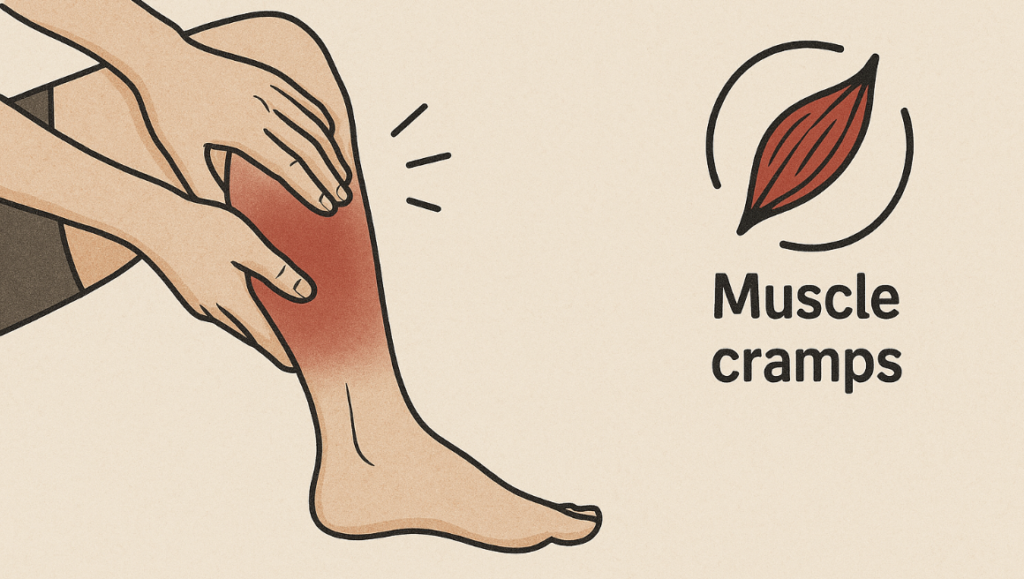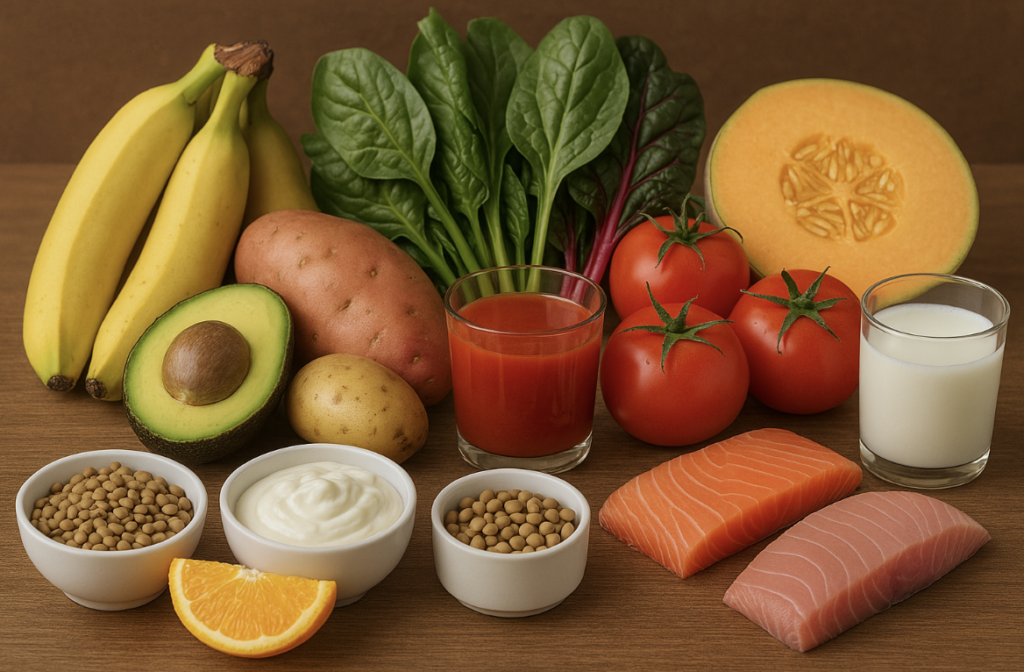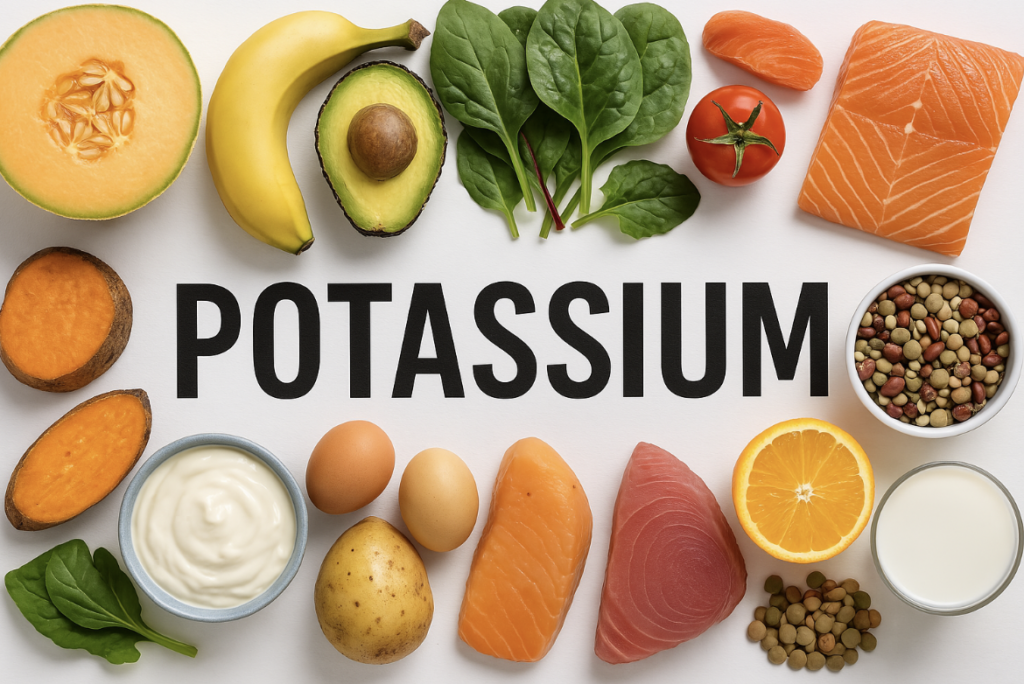Potassium is an essential electrolyte that plays a major role in nerve function, muscle movement, hydration, and heart rhythm. Although it’s abundant in whole foods, many people still fall short—especially if they eat a highly processed diet. In this post, we’ll explore what potassium does in your body, the health benefits, signs of deficiency, food sources, and tips for maintaining the right balance.
What Is Potassium and What Does It Do?
Potassium is a mineral and electrolyte that helps regulate fluid balance, send nerve signals, and control muscle contractions—including your heartbeat.
✔ Key Functions of Potassium:
- Balances fluids and electrolytes in the body
- Maintains healthy blood pressure
- Supports nerve impulse transmission
- Aids in muscle contraction and recovery
- Helps with nutrient transport into and out of cells
💡 Did You Know? Potassium and sodium work together to regulate blood volume and pressure—most people get too much sodium and not enough potassium.
Top Health Benefits of Potassium

✔ 1. Lowers Blood Pressure
Potassium helps relax blood vessels and counteracts the effects of sodium, reducing strain on the cardiovascular system.
✔ 2. Reduces Risk of Stroke and Heart Disease
Adequate potassium intake is linked to a lower risk of stroke, heart attack, and heart rhythm problems.
✔ 3. Prevents Muscle Cramps and Spasms
As an electrolyte, potassium helps regulate nerve signals and muscle function, reducing cramps.
✔ 4. Supports Kidney Health
Potassium helps flush excess sodium, easing the burden on your kidneys and reducing risk of kidney stones.
✔ 5. Improves Bone Health
Diets rich in potassium-rich fruits and vegetables may help preserve calcium and strengthen bones.
Signs of Potassium Deficiency (Hypokalemia)

⚠️ Common Symptoms:
- Fatigue or muscle weakness
- Muscle cramps or twitching
- Constipation or bloating
- Irregular heartbeat or palpitations
- Tingling or numbness
💡 At-Risk Groups:
- People with high sodium intake
- Athletes or heavy sweaters
- Individuals with kidney or digestive disorders
- Those taking diuretics or certain medications (e.g., blood pressure meds)
Best Food Sources of Potassium

🍌 Fruits and Vegetables:
- Bananas and avocados
- Sweet potatoes and white potatoes
- Spinach, Swiss chard, and beet greens
- Tomatoes and tomato juice
- Oranges and melons
🌾 Other Sources:
- Beans and lentils
- Yogurt and milk
- Coconut water
- Salmon and tuna
💡 Tip: Cooking vegetables can reduce potassium content—light steaming preserves more than boiling.
Recommended Daily Intake (RDI)
- Adults (both sexes): 2,500–3,000 mg/day (minimum)
- Optimal intake (based on updated guidelines): 3,500–4,700 mg/day
- Higher needs may apply during intense exercise or heat
Potassium Supplement Considerations
⚠️ Important Note:
Potassium supplements are not usually needed and can be dangerous in high doses without supervision.
✔ When to Consider:
- Medically advised for people with documented hypokalemia
- Use only under a doctor’s guidance
💡 Best Strategy: Get potassium from whole foods instead of pills—it’s safer and easier to regulate.
Pros and Cons of Potassium
✔ Pros:
- Supports heart, muscle, and nerve health
- Lowers blood pressure naturally
- Easy to get from a balanced, plant-rich diet
⚠️ Cons:
- High intake from supplements can cause arrhythmia or heart issues
- People with kidney disease must manage intake carefully
- Can interact with certain medications (e.g., ACE inhibitors)
Potassium is essential for nearly every cellular function in your body—but most people don’t get enough. Focus on whole foods like fruits, vegetables, and legumes to hit your daily targets safely. With proper balance, potassium can help lower blood pressure, boost energy, and protect your heart, muscles, and bones for life.
Read more on omega-3 fatty acids for brain and heart health
Learn more about potassium from the National Institutes of Health
